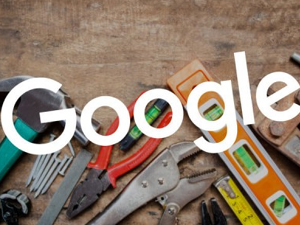



Date:02/05/17
 Google has announced a new set of changes to its search engine, in an effort to deliver higher quality results and limit fake news. The company outlined changes to its search ranking, feedback tools, and transparency practices in a blog post published today.
Google has announced a new set of changes to its search engine, in an effort to deliver higher quality results and limit fake news. The company outlined changes to its search ranking, feedback tools, and transparency practices in a blog post published today.
To limit the spread of offensive or inaccurate search results, Google recently updated its Search Quality Rater Guidelines, which human evaluators use to gauge the quality of search results. The updated guidelines provide clearer examples of low-quality results, including “misleading information, unexpected offensive results, hoaxes and unsupported conspiracy theories,” engineering VP Ben Gomes wrote in the blog post. Google has also tweaked its algorithms to prioritize authoritative results.
Google faced criticism in recent months for delivering search results that were wildly inaccurate or offensive. In December, Google’s top result for the query “did the Holocaust happen?” came from a white supremacist website. Gomes writes that such results “are less likely to appear” under the changes announced this week.
Google has also introduced a new feedback mechanism for users to report inaccurate autocomplete suggestions or featured snippets — the boxes of text that appear at the top of certain queries. Google’s featured snippets have in recent months sourced results from sites that traffic in conspiracy theories and hoaxes. Users can now report inaccurate or offensive snippets and autocomplete suggestions directly from the results page.
Google is seeking to be more transparent about its search practices, as well, and how its algorithms can deliver outlandish results. The company’s policy on content removal and autocomplete suggestions is now available on its help center page, and more detailed information on search ranking has been added to its “how search works” site.
Google takes steps to limit offensive and inaccurate search results
 Google has announced a new set of changes to its search engine, in an effort to deliver higher quality results and limit fake news. The company outlined changes to its search ranking, feedback tools, and transparency practices in a blog post published today.
Google has announced a new set of changes to its search engine, in an effort to deliver higher quality results and limit fake news. The company outlined changes to its search ranking, feedback tools, and transparency practices in a blog post published today.To limit the spread of offensive or inaccurate search results, Google recently updated its Search Quality Rater Guidelines, which human evaluators use to gauge the quality of search results. The updated guidelines provide clearer examples of low-quality results, including “misleading information, unexpected offensive results, hoaxes and unsupported conspiracy theories,” engineering VP Ben Gomes wrote in the blog post. Google has also tweaked its algorithms to prioritize authoritative results.
Google faced criticism in recent months for delivering search results that were wildly inaccurate or offensive. In December, Google’s top result for the query “did the Holocaust happen?” came from a white supremacist website. Gomes writes that such results “are less likely to appear” under the changes announced this week.
Google has also introduced a new feedback mechanism for users to report inaccurate autocomplete suggestions or featured snippets — the boxes of text that appear at the top of certain queries. Google’s featured snippets have in recent months sourced results from sites that traffic in conspiracy theories and hoaxes. Users can now report inaccurate or offensive snippets and autocomplete suggestions directly from the results page.
Google is seeking to be more transparent about its search practices, as well, and how its algorithms can deliver outlandish results. The company’s policy on content removal and autocomplete suggestions is now available on its help center page, and more detailed information on search ranking has been added to its “how search works” site.
Views: 383
©ictnews.az. All rights reserved.Similar news
- Azerbaijani project to monitor disease via mobile phones
- Innovative educational system to be improved under presidential decree
- NTRC prolongs license of two TV and radio organizations for 6 years
- Azerbaijan establishes e-registry for medicines
- Azerbaijani museum introduces e-guide
- Nar Mobile opens “Nar Dunyasi” sales and service center in Siyazan city
- International conference on custom electronic services held in Baku
- OIC secretary general to attend COMSTECH meeting in Baku
- Azerbaijan develops earthquake warning system
- New law to regulate transition to digital broadcasting in Azerbaijan
- Azerbaijani State Social Protection Fund introduces electronic digital signature
- Intellectual traffic management system in Baku to be commissioned in December
- Tax Ministry of Azerbaijan started receiving video-addresses
- World Bank recommends Azerbaijan to speed up e-service introduction in real estate
- Azerbaijan to shift to electronic registration of real estate





















